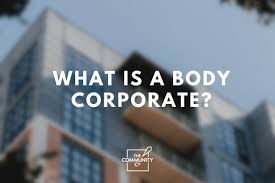A Scheme has certain statutory responsibilities in regard to body corporate insurance. Unfortunately, the provisions that set out these responsibilities are scattered throughout the Sectional Titles Act 95 of 1986 (the “ST Act”); the Sectional Titles Schemes Management Act (the “STSM Act”); the Regulations made under the STSM Act; and the Prescribed Management Rules (the “PMRs”).
In what follows I will set out the responsibilities that bodies corporate have in regard to insurance.
What does the legislation require regarding body corporate insurance?
1. As early as the first general meeting the developer must include in the agenda:
- a comprehensive summary of the rights and obligations of the body corporate under the policies and contracts entered into by the developer on behalf of the body corporate (PMR 16(1)(c) read with PMR16(2)(d))
- a motion to confirm or vary the terms of the policies of insurance effected by the developer or the body corporate (PMR 16(2)(a)).
2. At every general meeting the body corporate must:
- approve the schedules of insurance replacement values, with or without amendment (PMR 17(6)(j)(ii)).
- determine the extent of the liability, fidelity, and any additional insurance cover by the body corporate (PMR 17(6)(j)(iii)).
3. The body corporate must insure the building or buildings and keep it or them insured to the replacement value thereof against fire and such other risks as may be prescribed (section 3(1)(h) of the STSM Act).
4. The body corporate is, for the purposes of effecting any insurance under subsection 3(1)(h), considered to have an insurable interest for the replacement value of the building and must, for the purposes of effecting any other insurance under that subsection, be considered to have an insurable interest in the subject matter of such insurance (section 3(6) of the STSM Act).
5. The body corporate must insure against such other risks that the owners may by special resolution determine (section 3(1)(i) of the STSM Act).
6. PMR 23(1)(a) states that the insurance policies of the body corporate in terms of sections 3(1)(h) and (i) of the STSM Act must provide cover against:
(i) risks referred to in regulation 3;
(ii) risks that members resolve must be covered by insurance; and
(iii) risks that holders of registered first mortgage bonds over not less than 25 percent in the number of the primary sections by written notice to the body corporate may require to be covered by insurance.
7. Regulation 3 sets out the other risks against which a body corporate may insure, in terms of section 3(1)(h) of the STSM Act, are:
(a) lightning, explosion, and smoke;
(b) riot, civil commotion, strikes, lock-outs, labour disturbances, or malicious persons acting on behalf of or in connection with any political organisation;
(c) storm, tempest, windstorm, hail, and flood;
(d) earthquake and subsidence;
(e) water escape, including bursting or overflowing of water tanks, apparatus, or pipes;
(f) impact by aircraft and vehicles; and
(g) housebreaking or any attempt thereat.
8. The body corporate must take out insurance for additional risks when required to do so by written notice to the body corporate of holders of registered first mortgage bonds over not less than 25 percent in the number of the primary sections (PMR 23(1)(iii)).
9. The body corporate must, subject to section 17 and to the rights of the holder of any sectional mortgage bond, apply any insurance money received by it in respect of damage to the building, in rebuilding and reinstating the building or buildings in so far as this may be effected (section 3(1)(j) of the STSM Act).
10. The body corporate must pay premiums on any insurance policy effected by it (section 3(1)(k) of the STSM Act).
11. A body corporate must, on the written request of any owner or registered mortgagee of a section, produce to such owner or mortgagee, or any person authorised in writing by such owner or mortgagee, the insurance policy effected by the body corporate and the receipt for the last premium in respect thereof (section 3(1)(s) of the STSM Act).
12. The body corporate’s insurance policy must:
- PMR 23(1)(b): The insurance policy must specify a replacement value for each unit and exclusive use area, excluding the member’s interest in the land included in the scheme.
- PMR 23(1)(b) read with PMR 23(2)(a): Any member may at any time by written notice to the body corporate require that the replacement value specified for that member’s unit or exclusive use area be increased. A member is responsible for payment of any additional premium payable on account of an increase in the replacement value.
- PMR 23(1)(c): The policy must restrict the application of any “average” clause to individual units and exclusive use areas so that no such clause applies to the buildings as a whole. This means that if a unit is underinsured then the insurer will only pay out a percentage of the claim.
- PMR 23(1)(d): The policy must include a clause in terms of which the policy is valid and enforceable by any holder of a registered mortgage bond over a section or exclusive use area against the insurer notwithstanding any circumstances whatsoever which would otherwise entitle the insurer to refuse to make payment of the amount insured, unless and until the insurer terminates the insurance on at least 30 days’ notice to the bondholder.
- PMR 23(1)(d): The policy may include provision for “excess” amounts.
13. In terms of PMR 23(3) a body corporate must obtain a replacement valuation of all buildings and improvements that it must insure at least every three years and present such replacement valuation to the annual general meeting. PMR 23(4) states that a body corporate must prepare for each annual general meeting schedules showing estimates of:
(a) the replacement value of the buildings and all improvements to the common property; and
(b) the replacement value of each unit, excluding the member’s interest in the land included in the scheme. The total of such values of all units must equal the value of all the buildings and improvements.
14. On written request by any registered bondholder and the furnishing of satisfactory proof, the body corporate must record the cession to that bondholder of that member’s interest in any of the proceeds of the insurance policies of the body corporate (PMR 23(5)).
15. The body corporate must take out public liability insurance for an amount determined by members at a general meeting, but not less than 10 million Rand (R10 000 000) or any such higher amount as may be prescribed by the Minister in any one claim and in total for any one period of insurance to cover the risk of any liability it may incur to pay compensation in respect of:
(a) any bodily injury to or death or illness of a person on or in connection with the common property; and
(b) any damage to or loss of property that is sustained as a result of an occurrence or happening in connection with the common property (PMR 23(6)).
16. The body corporate must take out insurance for an amount determined by members in general meeting to cover the risk of loss of funds belonging to the body corporate or for which it is responsible, sustained as a result of any act of fraud or dishonesty committed by a trustee, managing agent, employee or other agents of the body corporate (PMR 23(6)).
17. A body corporate, authorised by a special resolution of members, may insure any additional insurable interest the body corporate has:
- in the land and buildings included in the scheme; and
- relating to the performance of its functions, for an amount determined in that resolution (PMR 23(8)).
Conclusion
As we can see from this article, a scheme has many responsibilities in regard to body corporate insurance. Obtaining building, fidelity, and liability insurance is one of the most important responsibilities of the body corporate. Insurance is a complicated arena, and bodies corporate should not shy away from employing reputable insurance brokers or advisers to assist them in obtaining the best insurance coverage for the scheme.
Written by Dr. Carryn Melissa Durham of Stratafin













